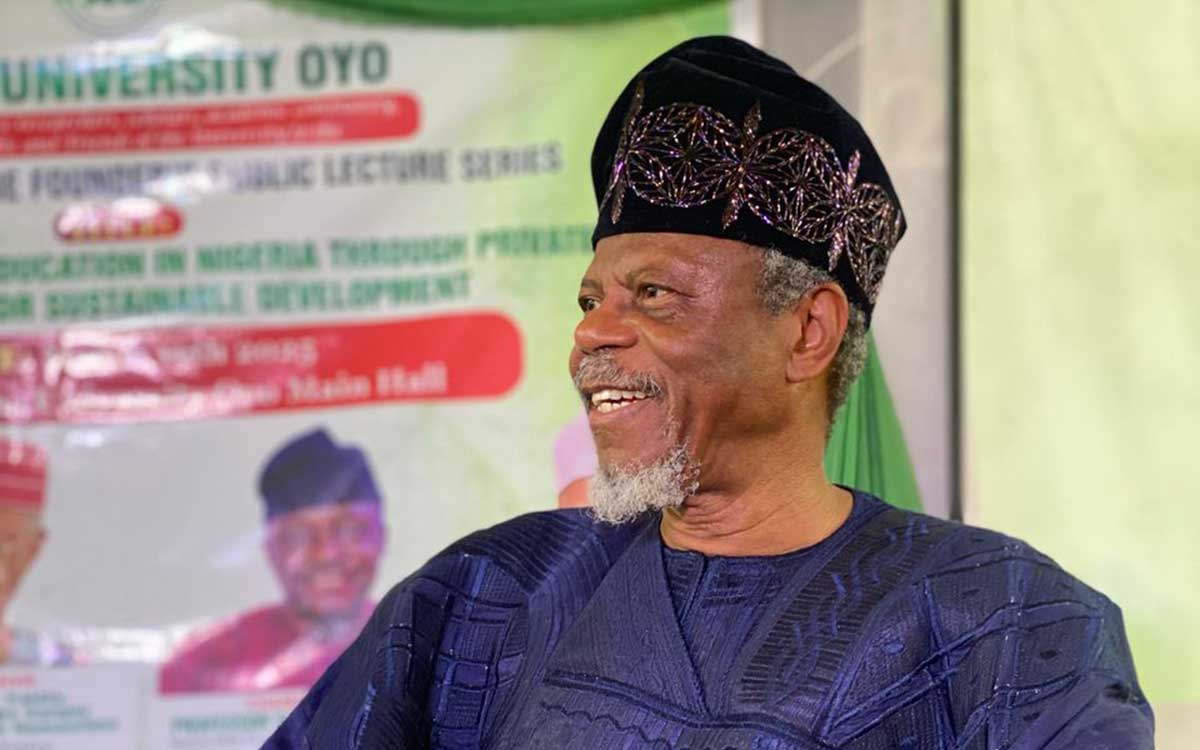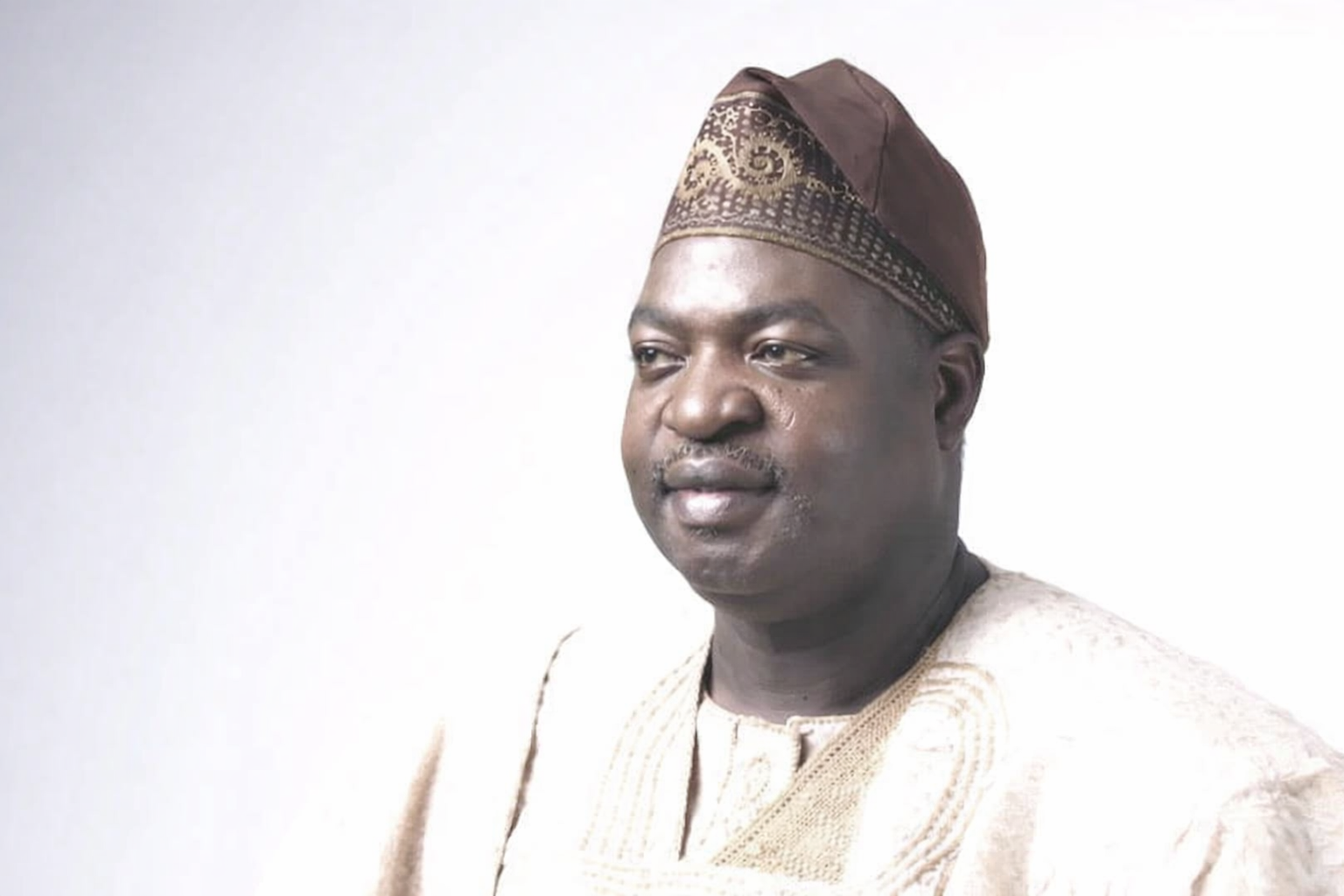 Eminent historian, Professor Toyin Falola, the Jacob and Frances Sanger Mossiker Chair in the Humanities, Professor of History, and University Distinguished Teaching Professor at the University of Texas at Austin, has called for the adoption of cutting-edge innovation in private universities in Nigeria, emphasising that development is guaranteed through technological advancements in education.
Eminent historian, Professor Toyin Falola, the Jacob and Frances Sanger Mossiker Chair in the Humanities, Professor of History, and University Distinguished Teaching Professor at the University of Texas at Austin, has called for the adoption of cutting-edge innovation in private universities in Nigeria, emphasising that development is guaranteed through technological advancements in education.
He made the call while delivering the maiden edition of Atiba University’s Founders’ Public Lecture on Wednesday at the university’s premises.
Addressing an audience of scholars, policymakers, students, and industry leaders, Falola presented a compelling argument on the necessity of embracing artificial intelligence, data analytics, and digital transformation in higher education.
In the lecture titled “Rethinking Tertiary Education in Nigeria through Private Universities for Sustainable Development”, Falola underscored the importance of innovation in private universities, stating that institutions must embrace digital transformation to stay relevant in the modern educational landscape.
“Education must move beyond traditional learning methods and integrate new technologies such as artificial intelligence, data analytics, and online learning,” Falola declared. “We live in an era where knowledge is not static. The universities that succeed will be those that continuously innovate, adjust to global trends, and prepare students for an ever-evolving digital economy.”
He stated that many global universities are already leveraging AI-driven teaching assistants, adaptive learning platforms, and big data analytics to personalise education and improve student engagement.
According to him, Nigerian private universities must follow suit to bridge the gap between industry demands and academic offerings.
“AI and data analytics have revolutionised how education is delivered worldwide. Universities in Nigeria must recognise that innovation is not optional; it is the very key to survival,” he stressed. “We must rethink how we structure curricula, ensuring they are not only theoretical but also grounded in industry-driven skills that will make our graduates employable anywhere in the world.”
Falola pointed out that one of the major weaknesses of Nigeria’s higher education system is its failure to keep pace with the rapidly evolving digital landscape. He lamented that while students in leading institutions worldwide are learning through AI-powered research labs, virtual simulations, and real-time data analytics, many Nigerian universities still rely heavily on outdated teaching models.
“If Nigerian universities do not catch up with the rest of the world, we will continue producing graduates who are unemployable. Employers today do not just want degrees; they want skills, digital proficiency, and the ability to innovate,” he said. “Private universities must take the lead in this transformation.”
He also emphasised the necessity of collaboration between universities and industry stakeholders to create curricula that align with market realities. “We cannot afford to operate in silos anymore. Universities must work hand in hand with industries to understand the skills in demand,” he said. “AI is transforming medicine, finance, and even agriculture. If we do not incorporate AI training into our education system, we are leaving our students unprepared for the jobs of the future.”
Falola advocated for stronger global partnerships between Nigerian private universities and leading international institutions to facilitate research collaborations, faculty development, and knowledge exchange. He pointed out that fostering such linkages would enhance the global competitiveness of Nigerian graduates.
“Our students must be equipped with problem-solving skills that match global standards,” he said. “Private universities should explore collaborations with technology firms, fintech companies, and multinational corporations that are already advancing AI-driven solutions.
This will provide students with hands-on experience and prepare them for a future driven by automation and digital intelligence.”
He further noted that online learning should no longer be seen as a secondary option but as a fundamental component of education in the 21st century. “We must leverage virtual classrooms, hybrid learning models, and AI-powered educational platforms. Universities that do not embrace these changes will become obsolete,” he warned.
“Education is no longer confined to the four walls of a classroom,” Falola continued. “Many students today learn through digital platforms, coding boot camps, and AI-driven assessments. Nigerian universities must harness these tools to make learning more effective and accessible.”
Calling for policy reforms, Falola urged the federal government and regulatory bodies to create an enabling environment for private universities to integrate technology seamlessly. He recommended incentives such as grants, tax breaks, and funding for institutions investing in digital transformation.
“Education policymakers must support innovation. We cannot continue to use outdated models and expect different results. If private universities are to drive sustainable development, they must be empowered to invest in AI, data analytics, and digital infrastructure,” he added. “Government policies should encourage research in AI and data analytics, ensuring that our universities are not just consumers of technology but also contributors to its development.”
Falola added that “Private universities have the flexibility to innovate faster than public institutions bogged down by bureaucracy. This is an opportunity to redefine education in Nigeria and set a new standard for excellence. Let us create universities where students do not just memorise information but learn to think, analyse, and innovate using the best tools available.”






